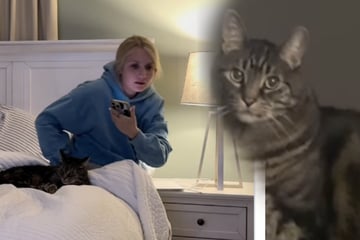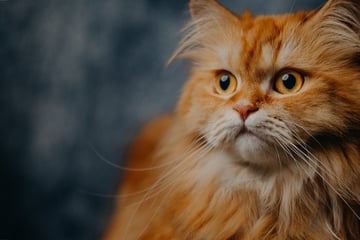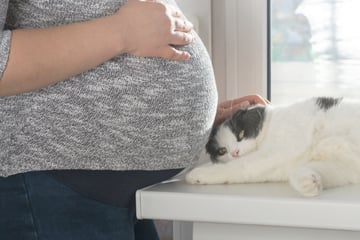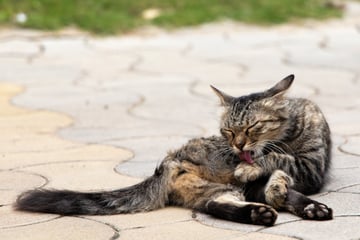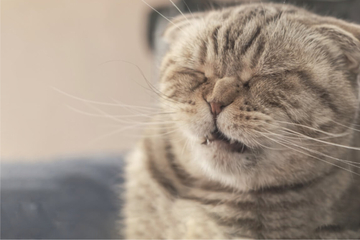Why does my cat have a saggy belly? All about a cat's primordial pouch
Have you ever noticed that your cat's belly tends to wobble when it runs? So why does your cat have a saggy bell, when do you need to worry, and what exactly is a cat's primordial pouch?
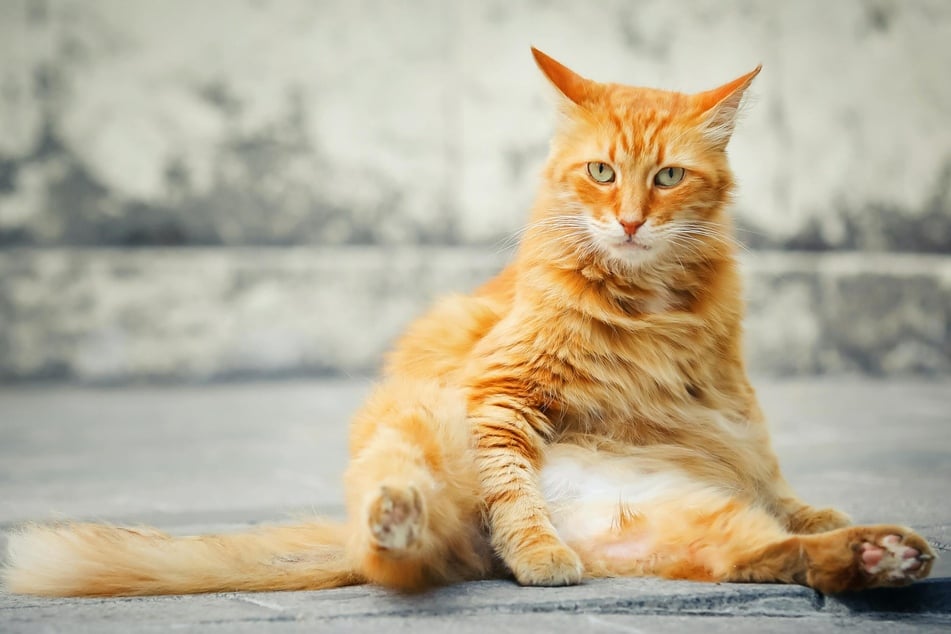
Chubby cats are rather adorable, we can all agree on that. Should you be worried about that sagging belly, though? Is it a sign of a poor diet or a lack of exercise?
Not necessarily!
Cat owners, meet your pet's primordial belly (or pouch)! It's actually completely healthy and normal, so there's nothing to fret about. Instead, give your kitty a cuddle and its belly a bop, right after you learn a bit more about this fascinating feline feature.
In this cat guide, TAG24 will take you through everything you need to know about a cat's primordial pouch and why that sagging belly actually has a very old backstory.
Why do cats have a primordial pouch?
A cat's primordial pouch is a layer of fat that hangs from a kitty's belly and lower abdomen. These flaps of flab vary between cats, and are a normal anatomical feature found across many different species of feline.
Veterinarians long believed that a cat's primordial belly is actually a point of weakness and that it may have formed due to neutering, but this is no longer the agreed upon explanation.
Instead, the primordial pouch is now understood as an evolutionary feature of a cat's body. It serves three specific functions:
- As a protective layer against injuries to internal organs during fights.
- To aid the mobility and flexibility of the body.
- To act as a fat reserve.
A cat's primordial belly is, consequently, a natural and healthy feature of the feline body!
Do all cats have a primordial pouch?
Every cat, no matter whether it is male or female, has a primordial pouch.
This flap of flabby skin hangs beneath their stomach and has a number of evolutionary purposes. It is mostly made up of skin and fat tissue (as well as fur, of course), and isn't something to worry yourself about.
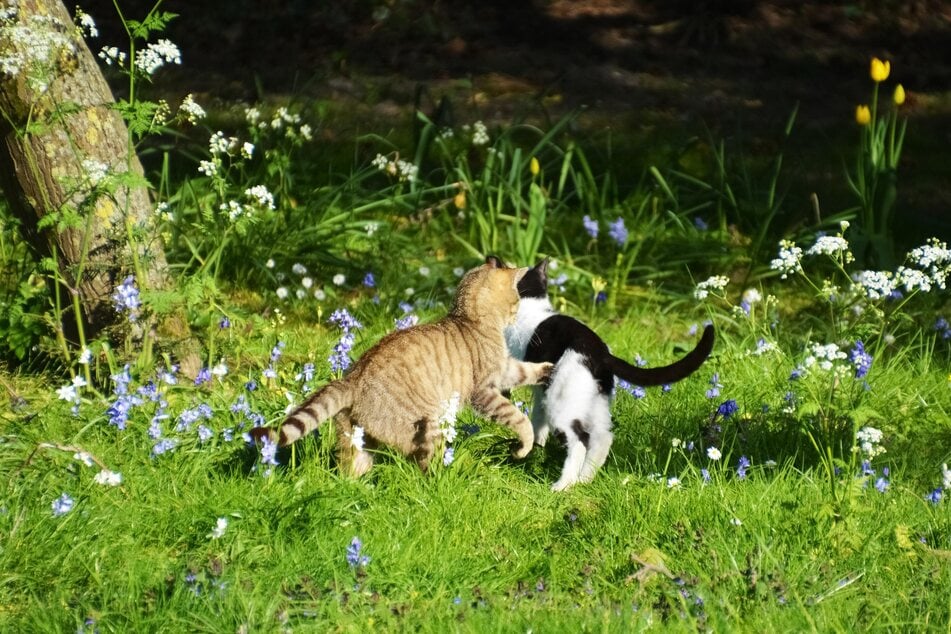
Why does my cat have a saggy belly?
There are four reasons why your cat might have a particularly saggy belly: it has a rather big primordial pouch, it's a big-bellied breed, it is overweight, or it has a health issue. Luckily for you, unless you have been feeding your cat meatballs its whole life, the most likely reason is the first one.
Remember that the primal belly we've been talking about serves a protective function for cats, and is actually helpful for your kitty. This all being said, though, you need to make sure that your cat isn't overweight as that can cause serious health issues in the future.
Please keep in mind: If your cat's belly begins to grow quickly, or it is coupled with other symptoms (which we'll touch on), the veterinarian should be your first port of call!
Which cat breeds have big primordial pouches?
There are a reasonable number of cats which have quite large primordial pouches. These cats are often those whose ancestors have evolutionarily needed the protection associated with such bellies.
Larger primordial pouches are often found on these cat breeds:
- Egyptian Mau
- Bengal Cats
- Ceylon Cats
Remember that cats can also develop flabby bellies after significant weight loss or even castration.
Keep in mind: If your cat's primordial pouch is dragging along the ground, it needs to be looked at by a veterinarian. Your cat's stomach should never hang that low and it could be a sign of serious illness.
When is a cat's primordial pouch dangerous?
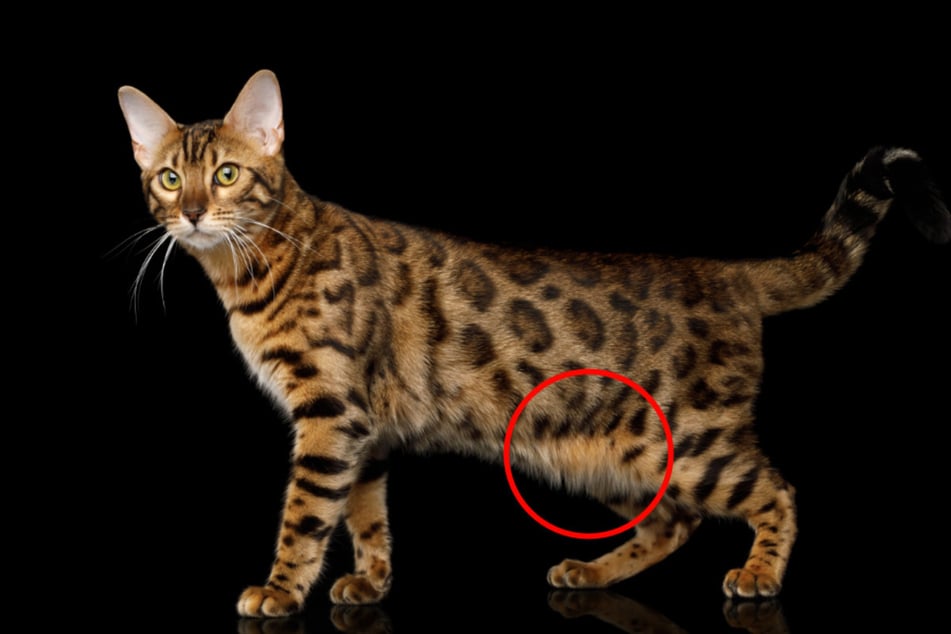
A primordial belly hangs low and wobbles, so it doesn't resemble a beer or potbelly. In such a case, where the belly has swollen and is quite hard, you could potentially have a serious problem.
Other causes of a low-hanging belly can include obesity, heart disease, FIP (feline infectious peritonitis), gastrointestinal problems, and parasites.
Many of these issues can cause serious illness in your cat and, in some cases, even death. Play it safe and have your cat regularly checked by a veterinarian.
Other worrying symptoms include:
- Hardening of the abdominal area
- Excessive swelling of the abdomen and chest
- Excessive apathy
- Increased sluggishness
- Sudden change in eating and drinking behavior
- High fever
- Regular vomiting
- Severe diarrhea
- Shortness of breath
This is by no means a complete list of symptoms or possible causes. If you have any questions, doubts, or worries, go to the vet immediately.
A primordial pouch may give your cat some flab, but not to worry!
Look, a bit of a sag is nothing to worry about. That wobbly undercarriage your cat carries around all day actually serves a purpose, and is also incredibly adorable. Yes, your cat can become overweight, but unless your veterinarian is concerned, that flab is probably nothing to worry about.
Of course, if you are concerned because your cat's primordial belly has suddenly grown, don't hesitate to take it to the veterinarian.
Cover photo: 123RF / Svklimkin
